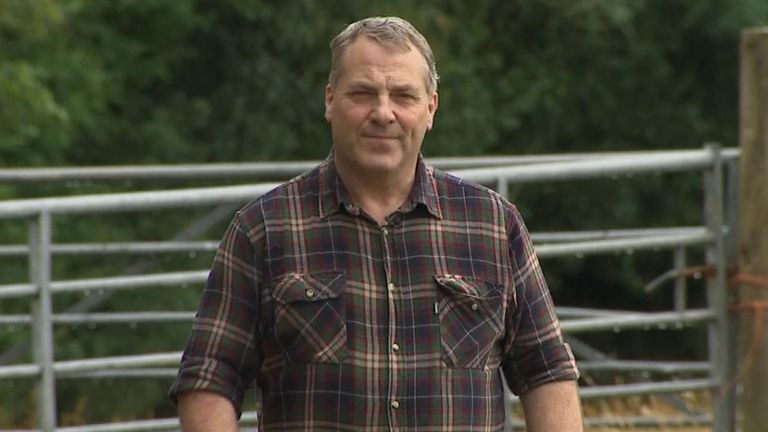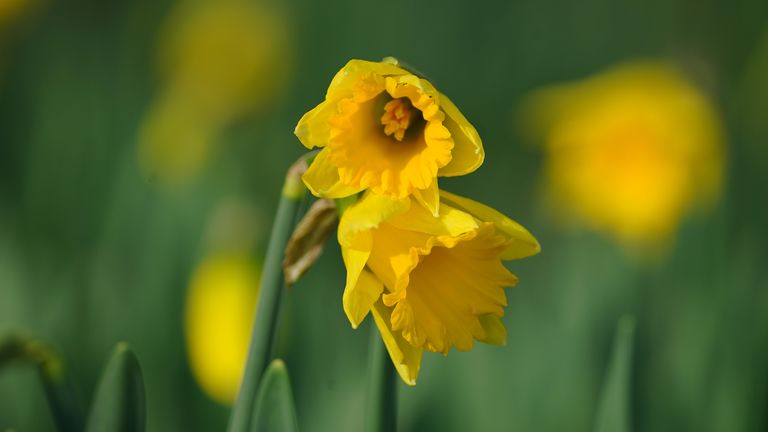Daffodil extract fed to cows could be ‘game changer’ in reducing methane production | Science & Tech News
Daffodils could provide the key to more sustainable livestock farming, according to scientists who say lab tests have proven promising.
Adding an extract from the flowers to livestock feed reduced methane in artificial cow stomachs by 96%.
A team of researchers at Scotland’s Rural College hope that when trialled in real cows, it could reduce methane emissions by at least 30%.
A four-year programme of trials is now beginning at farms around the UK.
On his farm in Powys, Kevin Stephens breeds cattle and grows daffodils.
He has been part of the team developing the science behind the new animal feed.
“We started growing daffodils originally to produce an Alzheimer’s drug, but we discovered that the daffodils also produce a compound that prevents ruminants from producing methane,” he said.
“So the chance to combine the two things was too good an opportunity to miss.”
Read more:
Dairy cows could be fed methane suppressants
Icelandic company turning CO2 to stone
For farmers like him, finding a way to farm more sustainably could be a game changer.
“This could make a huge difference to the livestock industry,” he said.
“There are governments across the world currently trying to meet net-zero by either taxing livestock farmers or putting quotas on the number of livestock you can have because of this methane by product.
“This gives us a very real opportunity to change that story.”
It is estimated that half of the country’s methane emissions come from cows.
And globally, livestock produce around 14% of the world’s greenhouse gasses.
Professor Jamie Newbold, professor of animal science at Scotland’s Rural College, said: “Our new project has three main stages.
“First developing a supply chain of daffodils and extracting the chemicals from daffodils. Secondly, testing that the additive is safe to both animals and humans, and finally, working with our farmer partners across England and Wales to prove the additive is effective in reducing methane production and feed costs for dairy cattle.
“This is vital because greenhouse gases and global warming is a major global challenge, and we hope our project will be part of the solution of reducing the role of ruminants in methane production.”


